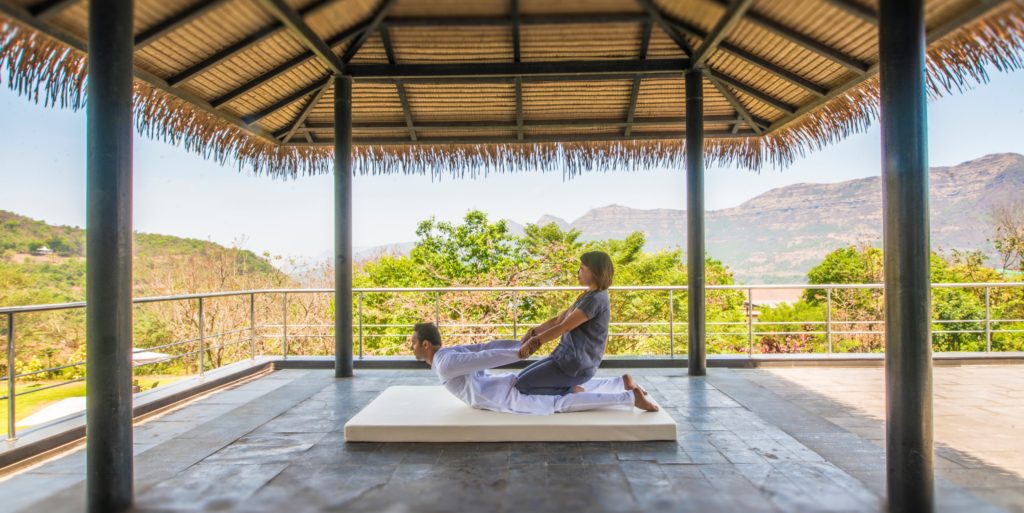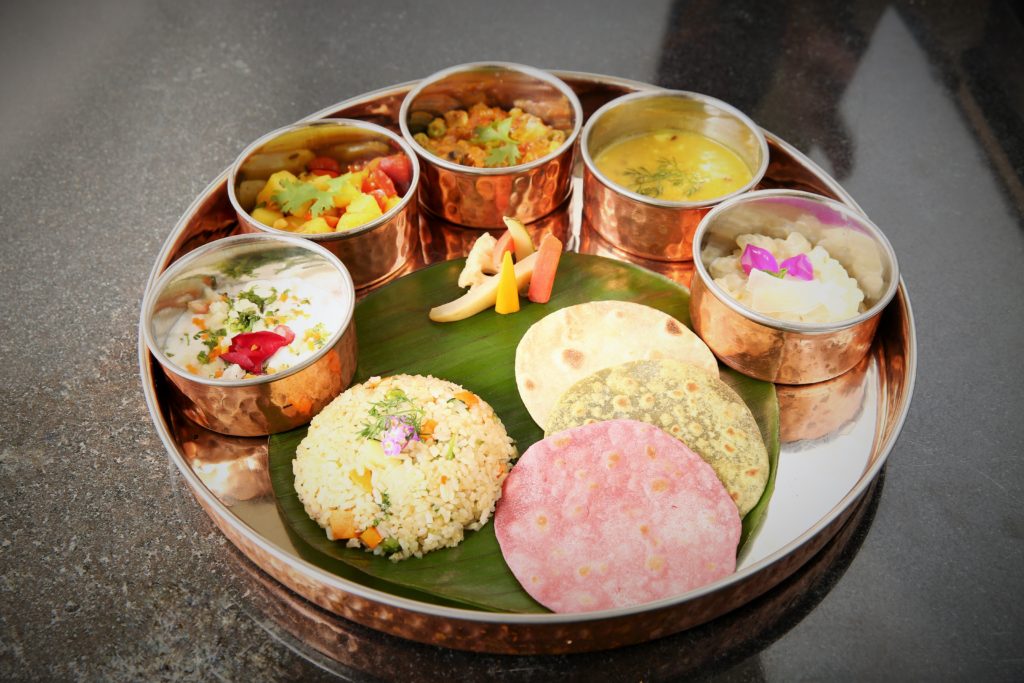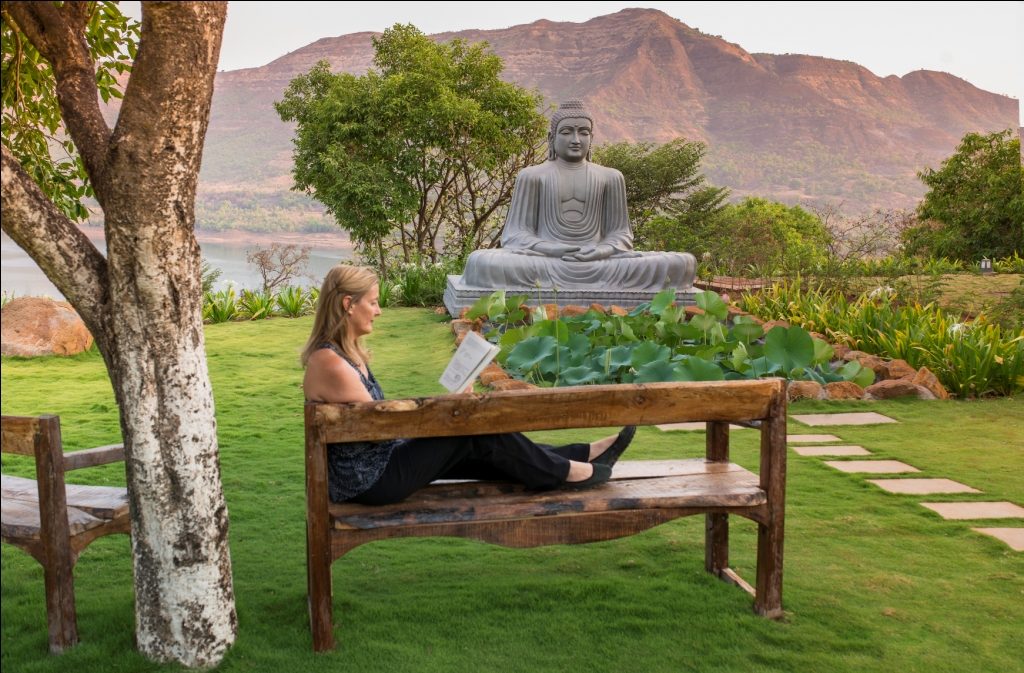The Ultimate Ayurvedic Guide to Winter Wellness

Commit to holistic health as a part of your lifestyle this winter season, as advocated by Dr. Manoj Kutteri, Wellness Director at Atmantan Wellness Centre.
Shrink. Wilt. Wizen. Come winter and with the first frost, we shrink like a raisin in the biting cold. Our body tries to adapt to the low temperatures, the shorter days and the winter haze. But given the alarming rise in the levels of pollution, the amount of stress we accumulate, and our relentless pursuit of FOMO during the year end, we need a little more than the tenderness of Hygge and heaters to make sure we scuttle around at optimum levels.
BeejLiving consulted Dr. Manoj Kutteri, Wellness Director at Atmantan Wellness Centre, about holistic health for the winter season. A Keralite, this third generation healer has a Masters degree in Psychology as well as Business Administration, and a doctorate in health sciences from the United States.
He shares his secrets for staying fit in the winter. Rising at 6am, he recommends the sun salutation and mild stretches to energise the body. He follows this by drinking a glass of warm water with half a lime squeezed in, which has a fantastic alkalising effect on the system. His breakfast is light and nutritious, starting with a bowl of fruit and a nut-based cereal, a protein-based smoothie or a meal made of good carbohydrates. Dr. Kutteri’s major meal for the day is lunch, where he advocates an Indian meal plan—veggies and salad with roti or rice. In the evening he snacks on a protein bar, has some more fruit and adds a few nuts to the mix, ending the day with an early dinner, by 7:30pm. Before bedtime, he meditates.

Start your morning with a smoothie
He says that according to Ayurveda, winter is actually the best season to improve immunity, and luckily for us in this part of the world, it coincides with the end of the year. He suggests a strict regimen—adding fibre to the diet, drinking at least 3 litres of water daily, exercising for an hour daily, avoiding late dinners, fried foods, sugar and alcohol, eating smaller meals and a once-a-week fruit or juice fast. He speaks about managing stress, building immunity and the importance of a routine.
Life doesn’t come with a manual. So, how do we detach from stress?
We need to understand that certain physiological processes get activated in our body in response to an acute physical emergency. The stress response involves a coordinated but complex system of physiological responses that are called upon as needed. Such responses are beneficial at times because they provide us immunity and prepare us to deal with potentially dangerous situations, something coined as essential stress or “eustress.” But when these reactions sustain over a period of time, as a consequence to ongoing stress, our wellbeing is affected.
To combat this—Yoga, breathing exercises, meditation and physical exercises—are extremely important. The physical and mental practices associated with yoga teach you to detach from the afflictions of your mind. You also need to adopt a stress reducing diet abundant in vitamins, minerals and other micro-nutrients.

Stretching is a great way to start the day
For the winter season, what should we include in our diets?
Due to lower vitality, the season brings a host of health problems, thus our diet should be immunity (Bala is the Sanskrit word for immunity, denoting strength, a concept that extends beyond the western notions of the term) boosting. The food we eat should include fresh, organic, easy to digest, pure and wholesome produce, while avoiding hard to digest dishes. The food that nourishes and balances our body in the cold, dry, winter season are sweet, sour and salty tastes and it’s best to minimise astringent, bitter, and pungent tastes in winter, although as per Ayurveda, all six tastes need to be included in your diet. Your diet needs to comprise of home cooked meals, basically warm and unctuous foods such as easily digestible broths and soups prepared using ghee or olive oil.

The winter menu should be immunity boosting, with a predominance of sweet, sour and salty tastes
When it comes to naturopathy, what basic principles should we include in our lifestyles, to lead a holistic life?
There are certain basic principles of naturopathic medicine, wherein you trust in the body’s inherent wisdom to heal itself and the power of nature—unity of disease and unity of cure. According to Ayurveda, winter is actually the best season to improve Bala or immunity. Bala includes psychological and spiritual immunity and fortifies you against any disturbances in these areas. As per Ayurveda, immunity is connected with digestion. A strong digestive system and a large appetite denote a strong immune system.
There are three kinds of immunity—Sahaj (hereditary), Kalaj (seasonal that fluctuates with life, seasons and planetary cycles) and Yuktrikrit (a balanced immunity that can be established by following an Ayurvedic lifestyle)
To live holistically, a number of basic principles need to be followed. One needs to look beyond the symptom of a disease to the underlying cause, normally toxicity. The next step is to use a natural, least invasive and non-toxic therapy to treat any ailments, thus causing no additional harm to the body. For this, you need to educate yourself as to how you can achieve and maintain good health, by viewing the body as an integrated whole, physically and spiritually. The ultimate aims needs to be an overall focus on health, wellness and disease prevention.

Relaxing and contemplation as a way of life
Speaking about prevention, how do you recommend we restructure our routines to suit where we are in our lives?
Over the years, my routine has evolved many times and this is usual with a change of residence. Also as you age, your mind sends different messages which you should pay heed to, as they are appropriate for the time.
Even at Atmantan, no two persons are alike and hence our approach also varies from person to person. However, I recommend a healthy routine for each to follow, which includes:
- An exercise routine with a focus to improve flexibility and endurance
- Yoga and breathing exercises to prevent stress
- Meditation and spiritual practices like pranic healing for establishing an emotional and spiritual balance
- Good posture and core conditioning to build gut health
- A digital detox
- A moderate diet that at the same time is rich in micronutrients, fibre and anti-oxidants
- A focus on eating locally sourced foods
- Hydration to maintain high energy levels
- Good sleep hygiene—a barometer of health
Image courtsey: Atmantan Wellness Centre





